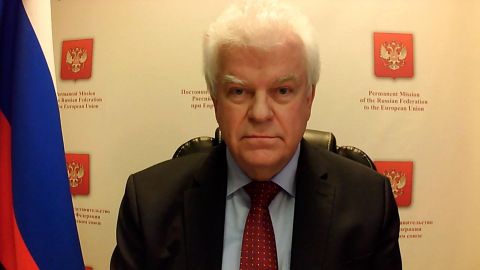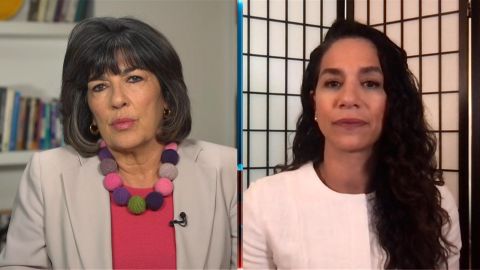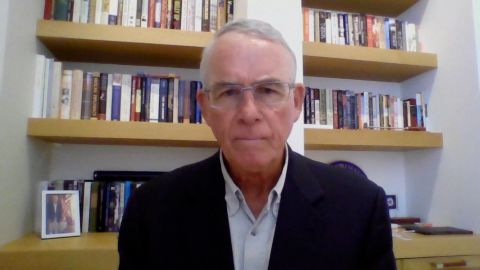Read Transcript EXPAND
NOURA ERAKAT, HUMAN RIGHTS ATTORNEY: As any Palestinian can tell you, this is not new, nor is it surprising that it’s happened. Palestinian citizens within Israel do not enjoy equality, but are, in fact, second-class citizens. The state has placed them under martial law. That was only lifted in 1966. And they remain under emergency rule. They remain legally subjugated by bifurcating Jewish nationality and Israeli citizenship, so that Israeli citizens don’t have as much right as Jewish nationals. Palestinians, any time that they rise up even within Israel have been met with excessive force, most recently in October 2000, when 13 Palestinians were killed; 13 Palestinian citizens of Israel were killed for protesting against the incursion in the West Bank. And, in 1976, when they rose up on Land Day, six Palestinians were killed. So, what we’re seeing today is not surprising and makes evident for the world to see that, within Israel, Jewish supremacy is a central organizing principle of government, so that to say that there are clashes actually obscures the power dynamic that subjugates Palestinians as a matter of law and policy. And so you won’t see any Israeli police protecting or attacking the Jewish Zionist mobs that are attacking Palestinians in the way that, for example, they have sent military border units into Lid. They have deployed them from the West Bank into a city with Israel in order to attack the Palestinians there. So, there is no parity. And we need to maintain — we need to mourn all life, while maintaining a context and an analysis of power that is at the root of these — what we would call unrest.
CHRISTIANE AMANPOUR: So, you talk about Lid. The Israelis call it Lod. And we’re hearing from people there who have lived in the same buildings, who are Arab and Jewish neighbors, who are just convulsed now by what’s happening. We hear the U.N. special envoy for the region saying that this is heading, or potentially, towards full-scale civil war within Israel. You heard Benny Gantz. I was really surprised to hear him make that intervention on television. The Israeli president himself has been on television trying to tamp that down. What will it take? Because this is — I mean, I know you say, and you’re correct, that this has been going on for a long time. But this is a pretty — I mean, we haven’t seen this internal conflict for quite a few years.
ERAKAT: Right. Absolutely. This is definitely the most widespread protests in recent years. But it’s also in response to the fact that Palestinians, citizens of the state, which Israel doesn’t even regard as Palestinians — they name them Arabs as an effort to negate their Palestinian national identity.
About This Episode EXPAND
Noura Erakat; Vladimir Chizhov; Francis Rooney; Jamal Simmons
LEARN MORE



